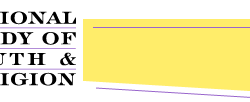|
Church Attendance and the Importance of Religion View printer-friendly version [PDF] Despite an 8 percent decline in the number of American 12th graders attending weekly religious services over the past 20 years, the number of U.S. high school seniors who say that religion is "very important" in their lives has actually increased slightly. These findings suggest that the importance of spirituality in the lives of young people continues to increase, while at the same time the importance of participating in religious organizations has declined somewhat. Analysis of these data, gathered by the Monitoring the Future Survey between 1976 and 1996, would seem to confirm anecdotal observations about the growing importance of subjective religion among youth. The overall trend in importance of religion is perhaps a slight polarization of importance, with "a little" and "pretty" each losing 3 percent to "not important" and "very important." But the most obvious fact in these findings is long-term stability on both measures. This preliminary analysis is designed to provide baseline information that will aid in the development of a comprehensive survey of adolescents for the National Study of Youth and Religion, a four-year research project being conducted at The University of North Carolina at Chapel Hill under the direction of Dr. Christian Smith. Funded by Lilly Endowment, Inc., this project is designed to enhance our understanding of the religious and spiritual lives of American adolescents.
Analysis of data was completed by Christian Smith, Melinda Lundquist Denton, Robert Faris, and Mark Regnerus. Christian Smith is Professor and Associate Chair of Sociology at The University of North Carolina at Chapel Hill. Melinda Lundquist Denton and Robert Faris are Ph.D. graduate students in sociology at The University of North Carolina at Chapel Hill. Mark Regnerus is Assistant Professor of Sociology and Director of the Center for Social Research at Calvin College, Grand Rapids, Mich. The Monitoring the Future (MTF) survey is a nationally representative survey of American high school students, administered to 12th graders since 1975. By design, MTF data does not include school dropouts and home-schooled youth. The MTF survey includes two religion questions on its core questionnaire analyzed here: 1) "How often do you attend religious services?" and 2) "How important is religion in your life?" Johnston, Lloyd D., Jerald G. Bachman, Patrick M. O'Malley, and John Schulenberg. MONITORING THE FUTURE: A CONTINUING STUDY OF AMERICAN YOUTH, 1976-1996 [Computer file]. Conducted by University of Michigan, Survey Research Center. ICPSR ed. Ann Arbor, MI: Inter-university Consortium for Political and Social Research producer and distributor]. The original collector of the data, ICPSR, and the relevant funding agency bear no responsibility for use of the data or for interpretations or inferences based upon such uses. 3-1-02 |
 |
 |
 |
|||||||||||||||||||||||||
|
|
|
|
|||||||||||||||||||||||||
 |
|
||||||||||||||||||||||||||
